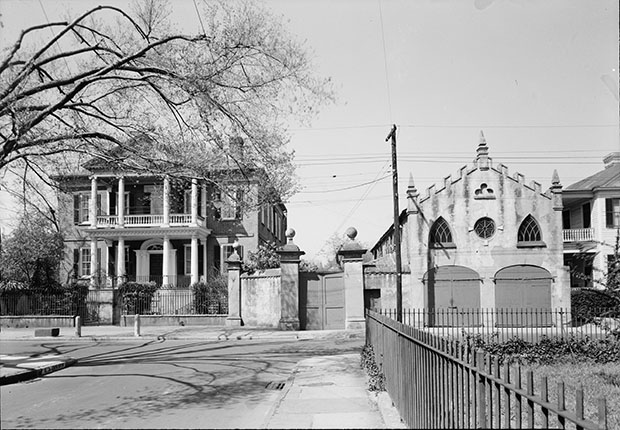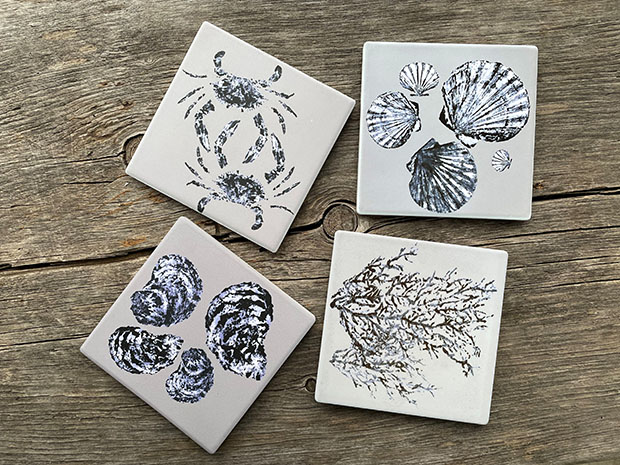Don’t Mess With Motte
04 Mar 2022
Charleston lady Rebecca Brewton Motte’s fiery decision during the American Revolution
By Tim Lowry

We are living in historic times. That’s the short and sweet way of saying, “Ain’t nothing like it ought to be around here because of that stupid virus!” These days we find that due to pandemic realities, long standing traditions must be altered. If we are to carry on with birthday celebrations, family gatherings, dinner parties and the like, then all participants must exhibit a willingness to adapt, i.e. move from indoors to out, change from large group to small and try to smile with your eyes because you will be posing for photos while wearing a mask!
I dare say there isn’t a soul among us that does not find this reality irksome if not downright irritating. However, it is not the first time that routine and custom have been adjusted to accommodate circumstances beyond one’s control. Consider, the example of Mrs. Rebecca Brewton Motte, the celebrated hostess of Charleston during the time of the American Revolution.
Following tradition, Mrs. Motte typically served dinner at her grand home at 27 King Street at three in the afternoon. Yet on any given afternoon of the year 1780, the doors to the dining room of her King Street home would be thrown open whenever her “guests” were ready to eat.
Generally, upon entering the dining room, one would find the man of the house at the head of the table carving a saddle of mutton while the lady stood opposite ladling soup from a tureen. But alas, Rebecca would see to the initial serving alone because her husband was invalid and unable to greet guests. After everyone was seated, the main dishes would be handed round. These would include beef, pork, poultry, wild game, eggs, greens, hominy grits, rice and a variety of seasonal vegetables. It was often the case that Mrs. Motte would employ the help of her three daughters in the serving of such a sumptuous banquet, although they were forbidden to mix with the company at her table during the turmoil surrounding the American Revolution.
After the dinner was done and the cloth cleared, it was not unusual for guests to be treated to a delicious plate of fresh pineapple, which was imported from the islands at some expense and considered a symbol of gracious hospitality.
However, though always gracious and well-mannered, Mrs. Motte had her limits and exotic fruit was not offered to the gentlemen in her dining room, because Rebecca was a patriot and these men were red coats occupying the city of Charleston. When they began using her home as a military headquarters, she found the situation intolerable and removed herself and her family to their country estate, Mount Joseph Plantation, on the Congaree River many miles from the city.
However, plans to resume regular customs (for dinner or anything else) were quickly dashed, when the plantation home was also overrun by red coat soldiers and Rebecca found herself living in an overseer’s cabin after being pushed out of her plantation house. The red coats, noting that the property commanded an excellent view of the river bluff, set about remaking her home into a full military encampment with officers billeted in the house and 150 men in tents around the yard.
By now, Rebecca’s husband had died and she might have been left defenseless except for the help of General Francis Marion and Lt. Col. Henry “Light Horse Harry” Lee. They determined that immediate action must be taken, but the British had thoroughly fortified the property with surrounding fosse, abatis and a palisade wall. It seemed that the only way to quickly rout the British was to set the house afire. Of course, this proposal was completely contrary to the tradition of a lady defending her home and keeping it in good order.
However, Rebecca Motte not only agreed to the plan, but exclaimed, “Do not hesitate a moment, I will give you something to facilitate the destruction.” She then presented the men with a quiver of arrows that could be fashioned into fiery darts to be shot onto the roof.
With her permission and blessing, the very next day the patriots successfully set fire to the house by the means provided. The British scrambled out of the dormer windows and onto the roof to extinguish the flames. Marion and Lee’s men were ready with a small cannon and blasted the red coats with grape shot. This put the red coats in quite a predicament. With flames licking at their feet and hot lead whizzing over their heads, the enemy was very suddenly left with no choice but to surrender. As quickly as the battle had begun, it was over, the flames extinguished, and Rebecca Motte was restored to her home.
Immediately, Mrs. Motte had her servants prepare a proper afternoon meal. And with gracious hospitality she insisted that patriot and red coat officers alike sit at her table and conduct themselves with the deportment and manner becoming of gentlemen. After a delightful meal that included toasts and polite conversation, the American patriots—having secured a British oath not to reengage Mrs. Motte’s property in the fight—paroled the red coats and escorted them from the premises. History does not record whether or not they were offered any pineapple.
After the war, Rebecca, regained her King Street home in Charleston, worked tirelessly to retire a tremendous amount of debt encumbered during the war, saw each of her daughters well married, and left her family a considerable estate upon her death at her plantation in 1815.
Rebecca Motte, lived in historic times. She realized that long-standing traditions would need to be altered and exhibited a willingness to adapt to circumstances beyond her control. That’s the long and drawn-out way of saying, “If Mrs. Motte could throw a dinner party during a war, then I can carry on through this cursed pandemic!”
Storyteller Tim Lowry is a Southern raconteur from Summerville. Learn more at www.storytellertimlowry.com.












